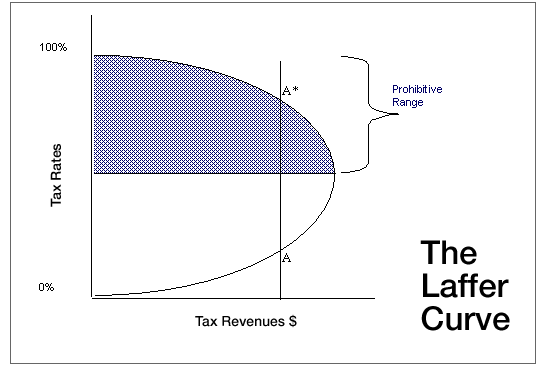There’s economic myths and economic myths – the Laffer minute Greens don’t get it
 ECONOMICS is packed full of myths: not the subject itself, but what people think they understand about it. The Economist has a look at a couple:
ECONOMICS is packed full of myths: not the subject itself, but what people think they understand about it. The Economist has a look at a couple:
A LETTER-WRITER and a commenter have kindly pointed out that vibrant markets exist for the pollination services of bees. This is contrary to the claim in last week’s Free Exchange column on inclusive wealth. It also spoils a nice allegory used by Sir James Meade in 1952 to illustrate external economies.
I feel suitably disabused. Next you’ll be telling me that private enterprise can provide profitable lighthouses, that used-car buyers often know as much as sellers, that the Dvorak keyboard is no faster than QWERTY and that Betamax was no better than VHS. Oh.
There are many more of course: some of them even important and relevant in this time of crisis. For example, there really is a Laffer Curve. It is possible to raise tax rates so high that reducing them will produce more tax revenue. The actual argument is about what those rates are: there’s good research to show that a 50 p income tax rate in the UK (when you add NI etc) is too high but that 45p might be that peak of the curve.
Plenty of people are shouting that recent events refute the efficient markets hypothesis. They seem to think that it means that markets are always the efficient way of organising things: not so. What it actually says is that markets are efficient at processing the information about what prices are in a market: no more. And a pretty obvious finding I think you’d agree.
Or perhaps my favourite, the cry from the Greens that economics doesn’t consider scarcity, running out of things. Given that the entire subject is about the allocation of scarce resources that really is a dimbulb belief.
The truth is, a lot of what people believe about economics, think that eonomics says about things, isn’t what economics does say at all: which is, sadly, why we get such appalling political implementations of economic ideas. Because very few actually understand what the original point was and thus obviously the plans get cocked up.
Posted: 9th, July 2012 | In: Money Comment (1) | TrackBack | Permalink


